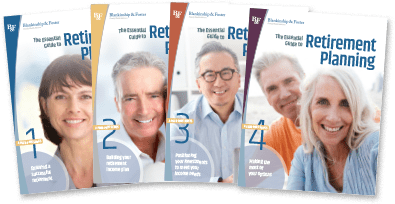It’s that time of the year again- tax filing season. The filing deadline for most 2021 tax returns is April 18, 2022 instead of April 15, due to the Emancipation Day holiday in the District of Columbia. Here are some tips from the Internal Revenue Service to help with filing your returns.
Free tax preparation for qualifying taxpayers
The IRS’s Volunteer Income Tax Assistance (VITA) and Tax Counseling for the Elderly (TCE) programs offer free basic tax return preparation to qualified individuals.
VITA sites offer free tax help to people who need assistance in preparing their own tax returns, including:
- People who generally make $58,000 or less
- Persons with disabilities; and
- Limited English-speaking taxpayers
The TCE program offers free tax help, particularly for those who are 60 years of age and older, specializing in questions about pensions and retirement-related issues unique to seniors.
The VITA/TCE sites are operated by IRS partners and staffed by volunteers who want to make a difference in their communities. VITA/TCE services are not only free, but they are also a reliable and trusted source for preparing tax returns. All VITA/TCE volunteers who prepare returns must take and pass tax law training that meets or exceeds IRS standards.
FAQS
We’re happy to answer any questions you have about our firm and our processes. Here are answers to some of the questions we receive most frequently.

VITA and TCE sites are generally located at community and neighborhood centers, libraries, schools, shopping malls and other convenient locations across the country. To locate the nearest VITA or TCE site near you, use the VITA Locator Tool or call 800-906-9887.
When looking for a TCE site, keep in mind that a majority of the TCE sites are operated by the AARP Foundation’s Tax Aide program. To locate the nearest AARP TCE Tax-Aide site between January and April use the AARP Site Locator Tool or call 888-227-7669.
At select tax sites, taxpayers also have an option to prepare their own basic federal and state tax return for free using web-based tax preparation software with an IRS-certified volunteer to help guide you through the process. This option is only available at locations that list “Self-Prep” in the site listing.
IRS resources to help taxpayers through all stages of the filing process
IRS online tools and resources provide the fastest way to get information and answers they need to file their federal tax returns. IRS.gov tools are easy to use and available 24 hours a day. People can use these tools to find information about their tax accounts, get answers to tax questions or file and pay taxes.
File electronically
The IRS strongly recommends individuals, especially those who don’t usually file a tax return, to file electronically for faster return processing and refunds. Using a trusted tax professional to prepare and file your returns will help guide people through the process and avoid making errors.
GUIDES
The Essential Guide to Retirement Planning
A 4-part series that answers key questions about building your plan, positioning your investments, and more.

Use direct deposit for tax refunds
Direct deposit gives taxpayers faster access to their refund, rather than waiting on a paper check. Individuals can use a bank account, prepaid debit card or mobile app to use direct deposit but will need to provide their accurate routing and account numbers. Taxpayers can open an account at an FDIC-insured bank or through the credit union locator tool. Veterans should see the Veterans Benefits Banking Program for access to financial services at participating banks.
Get answers with the Interactive Tax Assistant
Taxpayers who experienced changes to their income or other life events in 2021 could be eligible for tax credits and deductions that can put more money in their pockets. The Interactive Tax Assistant answers general tax law questions, like determining eligibility to claim certain credits and deductions or if a type of income is taxable.
Check the status of a refund with the Where’s My Refund tool
Tracking the status of a tax refund is easy with the Where’s My Refund? tool. It’s available anytime on IRS.gov or through the IRS2Go App. Taxpayers can start checking their refund status within 24 hours after an e-filed return is received. Where’s My Refund provides a personalized date after the return is processed and a refund is approved. While most tax refunds are issued within 21 days, some may take longer if the return requires additional review.
Taxpayers can start checking on the status of their return within 24 hours after the IRS acknowledges receipt of an electronically filed return or four weeks after the taxpayer mails a paper return. The tool’s tracker displays progress in three phases:
- Return received
- Refund approved
- Refund sent
To use Where’s My Refund?, taxpayers must enter their Social Security number or Individual Taxpayer Identification Number, their filing status and the exact whole dollar amount of their refund. The IRS updates the tool once a day, usually overnight, so there’s no need to check more often.
ACCREDITATIONS & AWARDS
We’re proud to have been honored by some of the organizations in our industry.

Prepare your own tax returns? IRS Free File can make it easier
For eligible individuals who want to prepare their own taxes, IRS Free File features electronic tax preparation software providers. This program provides free tax preparation, free electronic filing, and free direct deposit which is the fastest way to get a refund. People can also directly access IRS Free File from their mobile device using the IRS2Go app.
The IRS Free File adjusted gross income limit for 2021 is $73,000 for families and individuals. This year, there are eight IRS Free File products in English and two in Spanish. Each provider sets additional eligibility requirements, generally based on age, state residency, and income.
Things you will need before starting:
- Your Social Security number.
- Wage and income information, such as Form W-2 and Form 1099.
- Documentation for all tax credits and deductions. Keep in mind, with the current higher standard deduction, itemized deductions may not be necessary.
- Prior year adjusted gross income or self-select PIN. They need this information to validate and sign the tax return.
- Bank account and routing number for direct deposit of any refund into their account. This is the fastest and safest way to get their money
Taxes are a part of life for most Americans. At Blankinship & Foster, we make sure tax planning is part of your overall financial and investment plan. We work together with your tax advisor to make sure you are taking advantage of all the rules and guidelines, so that more of your hard-earned wealth goes to you and not to taxes.
Disclosure: The opinions expressed within this blog post are as of the date of publication and are provided for informational purposes only. Content will not be updated after publication and should not be considered current after the publication date. All opinions are subject to change without notice, and due to changes in the market or economic conditions may not necessarily come to pass. Nothing contained herein should be construed as a comprehensive statement of the matters discussed, considered investment, financial, legal, or tax advice, or a recommendation to buy or sell any securities, and no investment decision should be made based solely on any information provided herein. Links to third party content are included for convenience only, we do not endorse, sponsor, or recommend any of the third parties or their websites and do not guarantee the adequacy of information contained within their websites.

